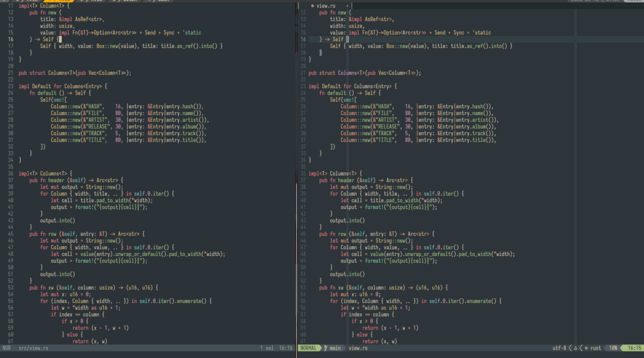I’ve looked briefly at #Treesitter queries a few times, and bailed out each time because at a glance it looks more complicated than I was motivated to push through.
Turns out they’re not very complicated. A little weird… until you realize they’re structured similarly to LISP things.
Once I grokked that, it didn’t take long to undersand the syntax. https://tree-sitter.github.io/tree-sitter/using-parsers/queries/index.html
Now I’ll see whether I want to do something with them beyond what comes stock in #neovim and the nvim-treesitter plugin.







 I was thinking to switch over to
I was thinking to switch over to